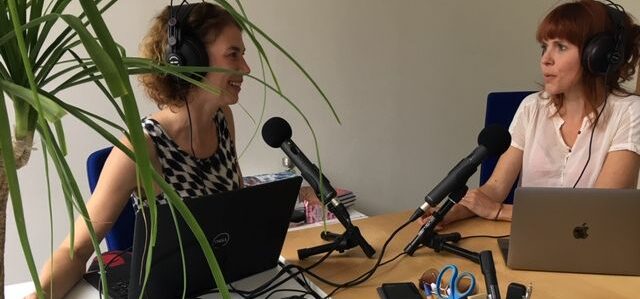May 12, 2023
Transitional Justice and Protest in Peru
The new episode of the Justice Visions podcast is a second episode of a miniseries that looks into the revolutionary potential of transitional justice in current protest. In this episode we examine the wave of recent protests and severe state violence in Peru. We link the aftermath of leftist ex-President Pedro Castillo’s failed coup d’état on December 7th 2022 and people’s demands to Peru’s former transitional justice process. This was a response to the country’s violent internal conflict between the 1980s and 2000s and concluded in 2003.
Together with our two studio guests, Sarah Kerremans and Rocio Silva Santisteban, we unearth a continuum of violence that helps to understand why this is happening today, why indigenous and rural communities find themselves at the centre of the conflict and how this links to Peru’s extractivist economic model and the country’s many ongoing ecoterritorial conflicts.
During her recent field work in Peru, Sarah witnessed the vitriolic attacks by institutions and mainstream media against indigenous groups: ‘What struck me most was the racist dimension of that endlessly repeated message that they wanted to take over Lima and the attempts to silence critical voices.’ Protesters in Peru have been coined as terrorists to delegitimize them and their demands during the current protests, as well as in many conflicts regarding extractivist projects.
Rocío Silva-Santisteban narrates how the current situation is unprecedented: “It is a situation that in some way or another shows that there is a great political malaise, a great malaise of the sectors that never before in the country had been represented by one of their own.” She points to the failed transitional justice process: “These are the same demands for justice, for truth, for memory, for reparation that were not fulfilled 20 years ago.” However, she stills feels inspired by all these people organizing, “despite the difficulties, despite the harshness of the situation, despite the impunity, despite the fact that the state doesn’t care, they take the streets, they mobilize, they make themselves being heard.”
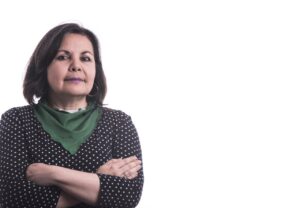
Rocío Silva-Santisteban Manriqu
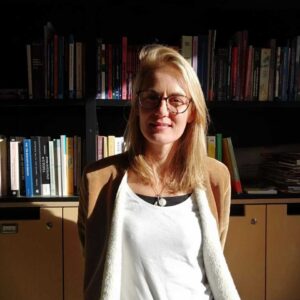
Sarah Kerremans
Rocío Silva-Santisteban Manrique is a Peruvian feminist, activist, a poet, a university professor and a human rights consultant. She has been the leading woman of the Peruvian National Coordinator of Human Rights (2011-2015) and has served as a Congresswoman (2020-2021). She has published several (non)academic books, such as ¿Cómo volver a vivir tranquilos?Biopolítica extractivista y posestallido en conflictos ecoterritoriales with José de Echave and Raphael Hoetmer.
Sarah Kerremans is a Belgian-Peruvian Justice Visions researcher working on human rights accountability and duty bearers, who has lived for more than a decade in Peru.
Voice-over: Gretel Alexandra Mejía
April 25, 2023
Exploring Transitional Justice’s Revolutionary Potential
The new episode of the Justice Visions podcast is a first episode of a miniseries that explores the revolutionary potential of transitional justice. Recently, an evolution can be observed in which grassroots actors are increasingly mobilizing the rhetoric and tools of transitional justice as an element of their protest repertoire. These expressions of transitional justice co-exist with state-centric and standardized transitional justice mechanisms.
The practice mobilizing transitional justice as a tool to further resistance against authoritarianism or exploitation, can in several ways be traced back to the origins transitional justice, which was also rooted in protests against dictatorships. Yet, the dynamics of resistance in transitional justice is largely underexplored in transitional justice scholarship. In this mini-series we will shed a light on some interesting cases, ranging from the Middle East and North Africa, to Latin and North America.
The first episode focuses on the MENA region where protest movements in several countries have used transitional justice tools and concepts for revolutionary purposes, protesting state repression, neo-colonial practices and extractivism. Our first guest is Noha Aboueldahab, who is a professor of transitional justice at Georgetown University in Doha. She is specialised in transitional justice in the Middle East and North Africa, and specifically also zooms in her latest research on the nexus between resistance and transitional justice. As Noha highlights, protest is integral to transitional justice: “The aspirations of transitional justice are by their very nature revolutionary in the sense that transitional justice seeks revolutionary change.”
One of the central questions of our conversation is how adopting this lens of protest is increasingly relevant to transitional justice scholarship and practices, and how it can transform these in ways that bring transitional justice closer to peoples lived experiences of harm. “It’s mostly Western knowledge production that becomes mainstreamed”, Noha argues. “And this is, of course, a problem not just in transitional justice, but in so many other disciplines. But because transitional justice is such a policy heavy field, this limited representation of the intellectual and practical material related to transitional justice is something that ultimately limits the strength of transitional justice policies to address these diversified contexts.”
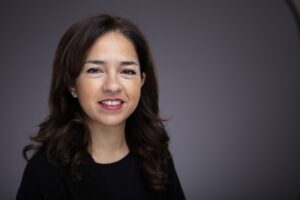
Noha Aboueldahab is Assistant Professor of international law at Georgetown University in Qatar. She is also a Senior Non-resident Fellow at the Middle East Council on Global Affairs, and was previously a Fellow and Non-Resident Fellow at the Brookings Institution. Aboueldahab is an award-winning specialist in transitional justice and is the author of Transitional Justice and the Prosecution of Political Leaders in the Arab Region.
Her second book (forthcoming with Oxford University Press) examines how Arab diasporas have expanded the political, intellectual, and socio-legal spaces of international law and transitional justice.
January 30, 2023
Does the election of Bongbong Marcos mean that transitional justice has failed in the Philippines?
In May 2022, Ferdinand ‘Bong Bong’ Marcos, the son of former dictator Ferdinand Marcos won the presidential elections in the Philippines. The vice-presidential elections were won by Sara Duterte, daughter of the former authoritarian president Rodrigo Duterte.
What does the election of the son of a former dictator tell us about the Philippines’ transitional justice process? What to make of the historical revisionism that facilitated this electoral outcome, in light of transitional justice’s concern with truth and memorialization?
The episode highlights that, while many activists and justice actors were initially focusing on the recovering the ill-gotten wealth of the Marcoses, and later on fighting the extra-judicial killings happening as part of Duterte’s violent war-on-drugs, an entire campaign aimed at erasing the violence and crimes perpetrated by the Marcos family from the public discourse was shaping up under the surface.
“Recovering ill-gotten wealth was what we were doing, but the Marcoses were recovering power”
– Ruben Carranza-
The interviews underline the impact of this of historical revisionism and the difficulty in combatting it in a context where there was never a widely shared and state-sanctioned historical narrative about the violence and economic crimes perpetrated by the Marcos regime. In the absence of a formal truth commission or institutionalized memorialization efforts, developing a shared understanding of the violence that transpired has been difficult. At the same time, the current campaign of historical revisionism, while commonly being traced to the Marcos family, is mostly being waged on social media platforms in a highly decentralized manner, making it difficult to develop an encompassing strategy to counter it.
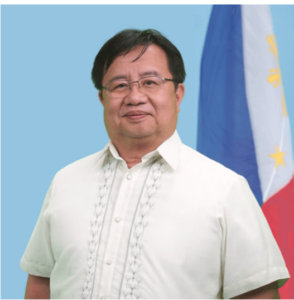
Carmelo ‘Chuck’ Crisanto is the director of the Human Rights Violations Victims Memorial Commission of the Philippines, a state agency mandated to memorialize the human rights victims of the Martial Law.

Ruben Carranza was a commissioner on the Presidential Commission for Good Governance from 2001-2004, and is currently a senior policy expert on reparations at the International Center for Transitional Justice
December 20, 2022
Historical truth as a tool for decolonisation
The new episode of the Justice Visions podcast is last episode of the miniseries on historical truth-seeking initiatives in the (post-)colonial state. Recently, Europe has experienced a boom of state-led and informal initiatives to address the legacies of the colonial past and its enduring harms in the present. In this episode we zoom out from the particular truth initiatives in European countries, to discuss some of the overarching topics and themes crossing across the episodes of this series.
Our guest is Dr Olivia Umurerwa Rutazibwa, an assistant Professor in Human Rights and Politics at the London School of Economics. We talk about the capacities of historical truth-seeking initiatives to contribute to the decolonisation project, accountability, and ultimately contribute to social change. As Olivia highlights, despite the formal decolonisation processes, “there is a continuity in colonial violence that’s embedded in many of our institutions”. The change that we should be aspire for is one that tackles the colonial status quo and dismantles colonial power dynamics.
One of the central questions of our conversation is how historical truth can contribute to the decolonial project? Olivia stresses the need to framing historical truth initiatives within a decolonising strategy or approach. This would mean questioning the points of origin assigned to the history we are transmitting; questions of silencing and desilencing. Who gets to speak and who is systematically silenced? The decolonial approach is very much about the explicit in Olivia’s perspective, “about the extent to which you see your project either contributing to the status quo or actively be against it”.
With the increased use of the transitional justice framework to think about historical injustice, Olivia argues that the question is not whether transitional justice “is the right thing or not”, but rather is about “the meaning that we give to it and how vigilant we are in how the language and the practises of it contribute to the status quo or not”.
November 17, 2022
Taking up space for decolonisation: civil society initiatives in Portugal
The new episode of the Justice Visions podcast expands on historical truth-seeking initiatives in the (post-)colonial state. In this miniseries co-hosted by postdoctoral research fellow Dr. Cira Pallí-Asperó, we look into formal and informal truth initiatives in European countries dealing with settler and overseas colonial legacies. In this episode, we zoom in on Portugal to discuss decolonisation in a context of explicit glorification of the imperial and colonial past. What kind of initiatives have been taken place? Led by who and for which purpose?
Our guest is Dr. Bruno Sena Martins, researcher at the Centre for Social Studies at the University of Coimbra. First and foremost, he stresses, the anti-colonial struggle is not something of the past: “it is a mission for this generation to (…) decolonize the present and to decolonize Europe”. In Portugal, critical consciousness about the colonial past has only recently been shaping up in the public debate with the establishment of different initiatives led by civil society organisations and by minority groups of people of African descent, with a significant role of academia.
Dr. Bruno Sena Martins talks about what kind of openings and opportunities have been created to address the legacies of the Portuguese colonial past; and how civil society organisations have been advocating to redress issues of inequality, recognition, social, racial, and historical justice. “This is a movement where different people, different actors claim that it is important to look at the past in a critical perspective. It is important to acknowledge that the colonial violence is still with us”.

